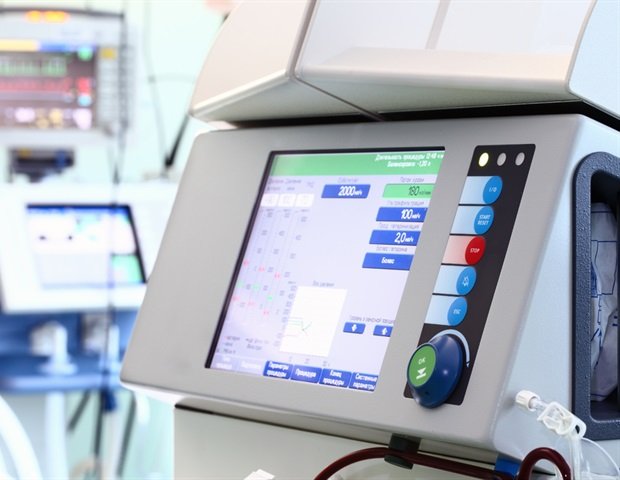Among people with dialysis-dependent kidney failure, a form of psychological treatment called pain coping skills training reduced pain in their daily lives, also known as pain interference. The clinical trial, funded by the National Institutes of Health (NIH), found that educating people about how to manage pain reduced the extent to which pain affected their work and social activities, mood and relationships . Pain coping skills training, which was tailored for people on long-term dialysis, also improved other pain outcomes, including pain intensity, depression, anxiety, and quality of life. Pain management skills training is a widely used approach to chronic pain, but has not previously been tested for people undergoing hemodialysis.
“Very few interventions have been shown to improve the quality of life of people with end-stage renal disease treated with hemodialysis,” said Dr. who led the study. “For example, opioids, which have been the primary treatment for pain in this population, have side effects that may be more pronounced in the presence of renal failure, making pain management difficult.”
More than 808,000 people in the United States are living with end-stage kidney disease, and 68% of them are treated with dialysis. People with dialysis-dependent kidney disease often experience chronic pain, but have limited pain treatment options. In addition, adherence to pain treatment plans can be difficult during dialysis. The study’s research team, known as the Hemodialysis Opioid Prescription Effort (HOPE) consortium, thus aimed to develop a behavioral intervention that would reduce pain perception, improve quality of life, and reduce opioid use in hemodialysis populations. This study is the largest randomized controlled trial to show that a non-pharmacological pain intervention provides benefits in people with end-stage renal disease undergoing hemodialysis.
The multicentre trial involved 643 adults who were treated with maintenance dialysis for end-stage renal disease and experienced chronic pain. About half of the participants were assigned to the pain coping skills training intervention, while the other half received usual clinical care without the trial-based intervention. Pain coping skills training included 12 weeks of virtual, one-on-one sessions with a coach to teach chronic pain coping skills, enhance self-efficacy (belief in one’s ability to achieve goals), and reduce sleep-related pain difficulties, anxiety and stress. The intervention included teaching, skill modeling, guided practice, and experiential learning. Coach-led sessions were followed by 12 weeks of automated interactive voice response sessions to refresh newly acquired skills.
At 12 weeks, 51% of people in the pain coping skills training group reported a reduction in pain interference versus 37% in the usual care group, and the benefit continued throughout the 24-week intervention period. The difference between the two groups narrowed at week 36, 12 weeks after the end of the intervention. Researchers believe that people who receive training in pain coping skills may need continued reinforcement to see additional or long-term benefit. Pain coping skills training also improved pain-related outcomes of pain severity, depression, anxiety, quality of life, and pain catastrophizing (a negative mental and emotional response to anticipated or actual pain associated with bad pain outcomes).
The study results suggest that pain management skills training may be an attractive alternative or adjunct to pain medication. Although the effect of training on pain coping skills in the overall cohort was modest, its high acceptability, tolerability and safety and its observed benefits on pain, anxiety, depression and quality of life support further research into the development of non-pharmacological , of non-invasive strategies for pain management in hemodialysis populations.
Future work will focus on how to prolong the beneficial effects of pain coping skills training and how to broadly implement this intervention in clinical practice. Based on the successful results of this study, we hope that this intervention can become widely available to dialysis patients.”
Dr. Laura M. Dember, lead author, nephrologist and clinical investigator at the University of Pennsylvania Perelman School of Medicine, Philadelphia
The study, the Hemodialysis Opioid Prescription Effort (HOPE) Consortium Trial to Reduce Pain and Opioid Use in Hemodialysis, was funded by the Helping to End Addiction Long-term Initiative, or NIH HEAL Initiative, an NIH-wide effort that seeks to accelerate scientific solutions to the overdose epidemic, including opioid and stimulant use disorders, and the chronic pain crisis;
Helping End Addiction Long-term® and NIH HEAL Initiative® are registered trademarks of the Department of Health and Human Services.
Source:
Journal Reference:
Dember L, Hsu J, Mehrotra R, et al. Pain Management Skills Training for Dialysis Patients: The HOPE Consortium Randomized Clinical Trial. JAMA Internal Medicine. 2024? doi: 10.1001/jamainternmed.2024.7140
